We Indians have presumably failed to cherish and appreciate our history, civilisation and cultural ethos. Time is ripe to end the myths and establish truth about India
Amullaya Gupta
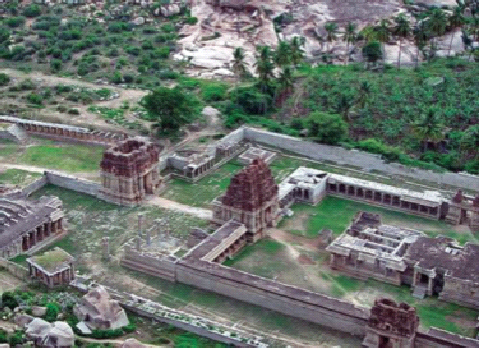
An aerial view of the ruins of Vijaynagar Empire
History needs to be written in an unbiased way without propagation of any particular propaganda and agenda
India has a long cherished history though with complicated variations and thoughts. These variations are usually witnessed due to study and writing of Indian history with different and even contradictory approaches such as Marxist, Colonial and the least talked and discussed Delhi biased history. We take proud in being 5000 year old civilisation, descendent of iconic Kings like Shri Ram, source of immense knowledge incorporated in literature like the Vedas, Puranas and surely for witnessing emergence of powerful empires like Maurya, Gupta, Vijaynagar, Cholas, Pandyas and warriors like Chandargupta Maurya, Maharana Partap, Shivaji, Marthanda Verma, etc. Unfortunately, many mighty Indian empires that deserve to be integral part of world history even struggled to find place in textbooks of India and jostled for space from the very beginning.
History demands to be written in an unbiased way without the propagation of any specific and particular propaganda and agenda. However, our historians failed to do justice with empires like Vijaynagar and warriors like Maharana Partap, there are couple of reasons which handicapped writing of Indian history culminating into the ignorance of its real heroes and perks.
Colonial Perspective and Myths Propagated
The East India Company hatched every possible conspiracy to conquest Indian states and also made aggressive attack on Indian culture, civilisation and history. They systematically designed education system, which reflected India as an inferior country not having prosperous past and civilisation of its own. The invasion of Aryans and their conquest on Harappan People is a Colonial creation. The theory was deliberately misused to create division between the North and South India, the upper and the lower caste. Indian literature extends no support to the notion of Aryan as Race. The word ‘Arya’ in Sanskrit means ‘noble’ and never a ‘race’. In fact, the authoritative Sanskrit lexicon, the famous Amarakosa says: Mahakula kulinarya sabhya sajjana sadhavah—An Arya is one who hails from a noble family, of gentle behaviour and demeanor, good-natured and of righteous conduct.
The Rigveda also uses the word ‘Arya’ something like thirty six times, but never to mean a race. Praja arya jyotiragrah—Children of Arya are led by light (RV, VII. 33.17). The Vedic text doesn’t record any invasion or defeat of a mighty civilisation like Harappan. No single Vedic scripture mentions of Aryans ever came from outside India. Geographical and Archaeological accounts also discard the theory. The theory invited criticism from many schools of thought and discarded by most of modern scholars and enlightened personalities like Swami Vivekananda, unfortunately our textbooks continued to teach the same communal theory even today.
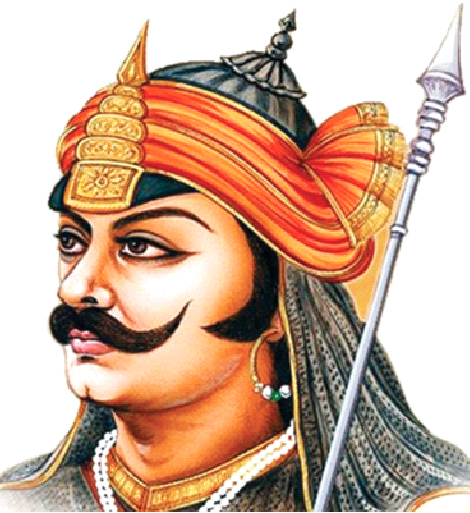
Maharana Pratap
The division of Indian history on religious line was also the creation of colonial approach of history to serve their cause of Divide and Rule. The entire Medieval India was labelled as Muslim Period. Hindu Empires like Vijaynagar were ignored and obscured dynasties like the Lodhis were glorified. Indian heroes like Maharana Partap and Shivaji were overshadowed by big lessons on Akbar and Aurangzeb. Unfortunately, the same trend continued in the post-Independence era as well.
Marxist Distortion
Marxist scholars and their selective approach to Indian history is primary responsible for most of the major distortion caused to Indian history. They ignored the contribution of India and Hinduism to humanity, mankind and science. They explained Indian history only taking caste system into account and made visible attacks on glorious Indian civilisation. Their narrative and writings are dominated with the wars where Indian side suffered defeat. While Battles such as Battle of Colachel, where Indian soldiers showed extraordinary valour and came out to be victorious are suppressed. They emphasised more on invaders and less on those who were invaded. The invaders and invasions were glorified, while the resistance for centuries made by those who were invaded were not given any heed. One of the finest example is ignoring the entire period between the conquest of Sindh by Mohammad Bin Qasim and invasions of Sultan of Ghazni and Muhammad Ghori. 300 years of our history are straightforward ignored. Why? This poses a serious question on the credibility of the history taught to Indian students.
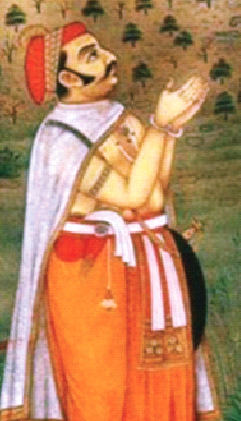
Bappa Rawal
Lalitaditya’s successive defeats to Junaid invasions and Bapa Rawal valour that brought Arab empire to its knees echoed during these three hundred years. Indian ruler restricted mighty Arabs to Sindh for over 300 years and resisted them to establish their foothold in other parts of India. This important period goes missing from our history. Moreover, Marxist gave no attention to India’s great saints who enlightened world with their sacred scriptures, thoughts and inventions.
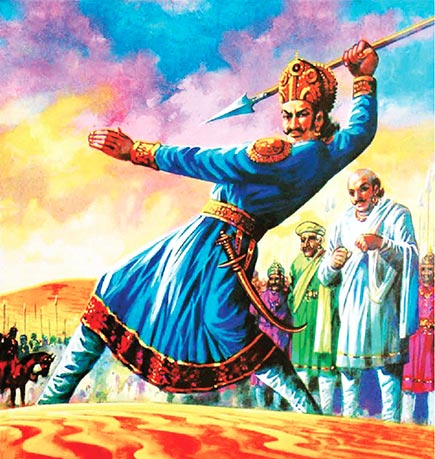
Lalitaditya
Delhi Biased History
Most chapters of Indian history are written with the perspective of Delhi and forcing us to learn obscure Dynasty like the Lodhis. Maritime traditions of Bengal and Orissa, Cholas and Pandayas relation with South East Asia, Maratha’s mighty empire in Deccan is buried under the pages of time. In fact, we have forgotten the fact that British captured India from Maratha’s and not Mughals. Vijaynagar Empire in its peak was as prosperous and mountainous as the Mughal empire. However, it has been almost wiped out from Indian history.
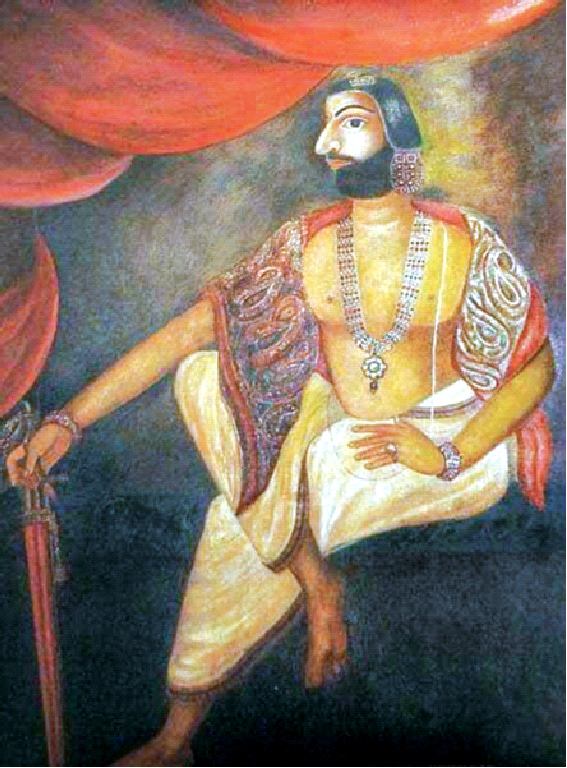
Marthanda Varma
Hearing the name of Kings like Marthanda Varma comes as a surprise to Indian students. Marthanda Varma, the legendary ruler who is considered to be the founder of the Travancore Kingdom, unluckily finds no mention in Indian textbooks. Dutch East India Company, which was most powerful in early 18th century, faced decisive defeat from the hand of Marthanda Verma. Indian civilisation flourished from time immemorial. However the present reconstruction and structure of Indian history reveals a sad and bizarre story. We Indians presumably failed to cherish and appreciate our history, civilisation and cultural ethos. The time is ripe to correct all the distortions in our history and also establish truth about India and Indians.
(The writer is Delhi-based researcher on History)














Comments